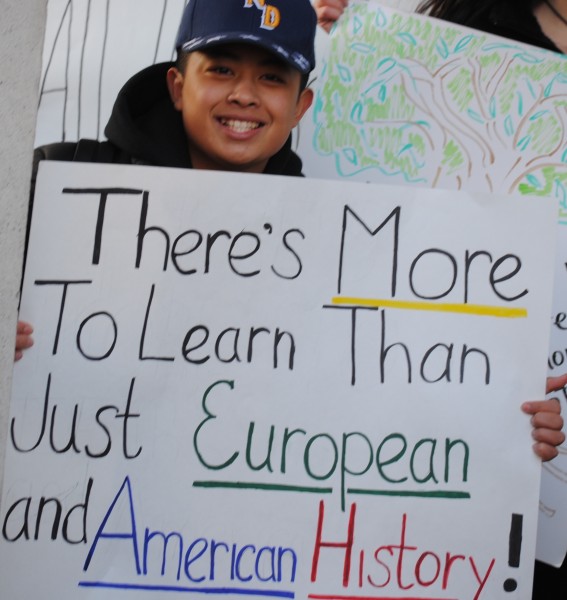 The Providence Student Union (PSU) rallied outside the Providence School Department Wednesday to demand Ethnic Study classes be taught for credit in high school. The event served as a kickoff to the PSU’s #OurHistoryMatters campaign, to counter the lack of representation of the Latino, Black, Southeast Asian, and American Indian population in the school’s classes.
The Providence Student Union (PSU) rallied outside the Providence School Department Wednesday to demand Ethnic Study classes be taught for credit in high school. The event served as a kickoff to the PSU’s #OurHistoryMatters campaign, to counter the lack of representation of the Latino, Black, Southeast Asian, and American Indian population in the school’s classes.
PSU was joined in their effort by representatives from PrYSM, the EJLRI, Youth in Action and DARE as well as community and labor leaders.
Recent studies have shown that high school students perform better when race and ethnicity classes are offered. A Guardian report on a Stanford University study said, “Student attendance increased by 21%, while grade-point averages surged nearly a grade and a half for those enrolled in the class – striking results, according to the researchers.”
Students spoke passionately about the lack of representation in their history classes (see video below). They also resented having to learn real history outside of school. “I just recently learned the truth about Columbus Day,” said Diane Gonzalez from Central High School. “I didn’t know who Columbus really was, until I learned it with Providence Student Union, in one of our mini workshops about oppression… I’m Guatemalan, and I have no idea about our history at all.”
“This is an undeniable problem,” said Afaf Akid, a senior at E-Cubed Academy and a PSU youth leader, in a statement. “We did an analysis of the American history textbook we use in Providence, and our results were shocking. Of our textbook’s 1,192 pages, fewer than 100 pages are dedicated to people of color. That’s less than 10% of our history curriculum, in a district where 91% of the students are people of color. That is unacceptable. And, of course, the few references to people of color are problematic as well, often treating issues like slavery and colonialism as neutral or even positive developments. We deserve better.”
“The oppression of enslaved African-Americans and Native Americans is disguised as… ‘cultural exchange,'” said Licelit Caraballo, “the hardships that Asians had to endure as they migrated to the US is viewed as just ‘seeking work’ when they were also treated as slaves. Our history books don’t cover these topics.”
A very interesting part of the presentation consisted of holding up black and white posters of famous activists of color, and asking those in attendance if they knew the people pictured. First up was Bayard Rustin, a leader in civil rights, socialism, nonviolence, and gay rights written out of civil rights history because of his homosexuality and atheism. Also held up was Fred Hampton of the Black Panther Party, Grace Lee Boggs, author, social activist, philosopher and feminist born here in Providence, Dolores Huerta, labor leader and civil rights activist and Ella Baker, civil and human rights activist.
“We think it should be pretty self-evident that Providence students need a more culturally relevant curriculum,” said Justin Hernandez, a junior at Hope High School and a PSU school delegate. “But if those in charge of our school system need convincing, we are ready. We’re used to tough fights, from ending the unfair NECAP graduation requirement to expanding bus passes. And we are excited to do whatever it takes to win ethnic studies courses and move our schools a little closer towards providing us the education we deserve.”
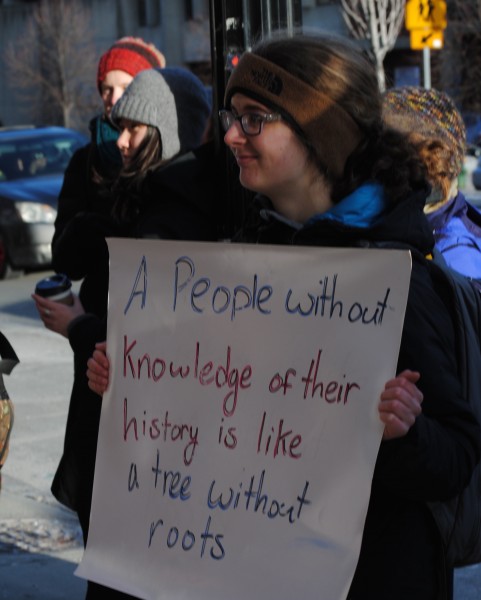
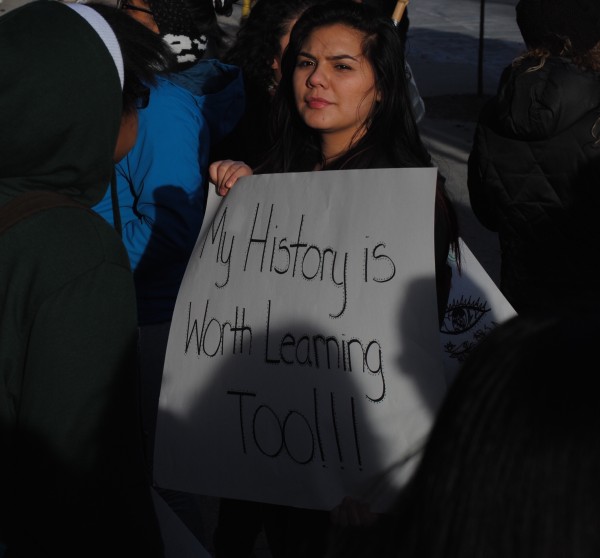
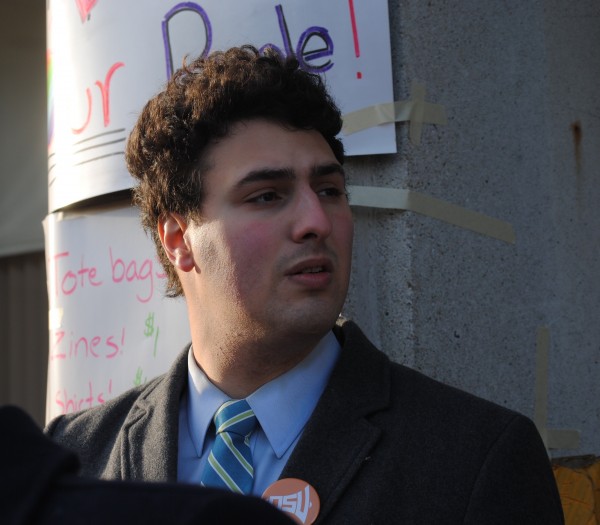
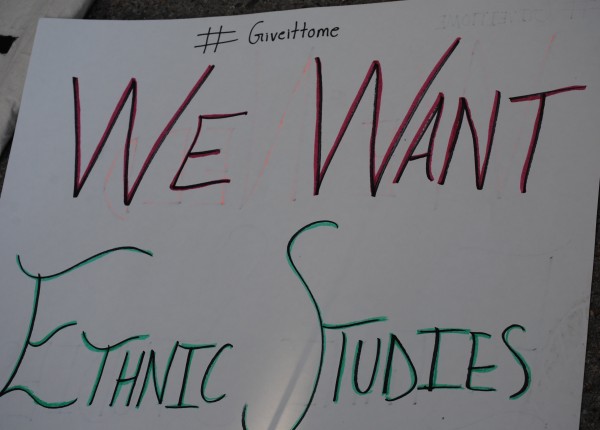
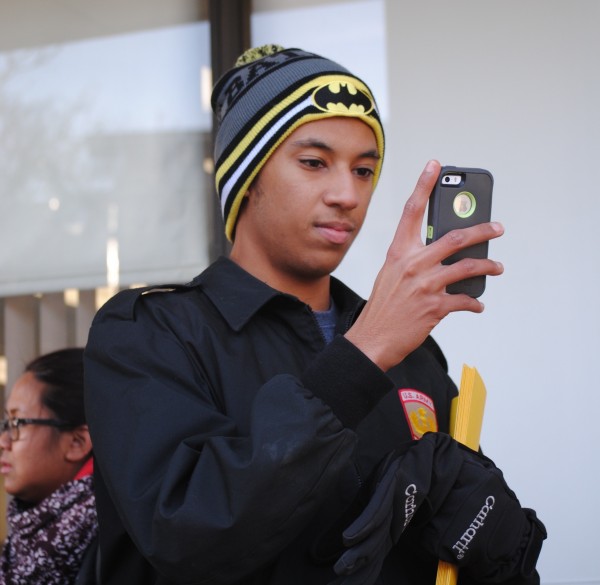
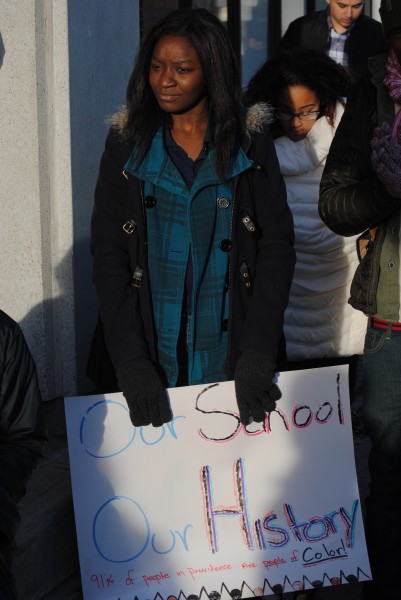
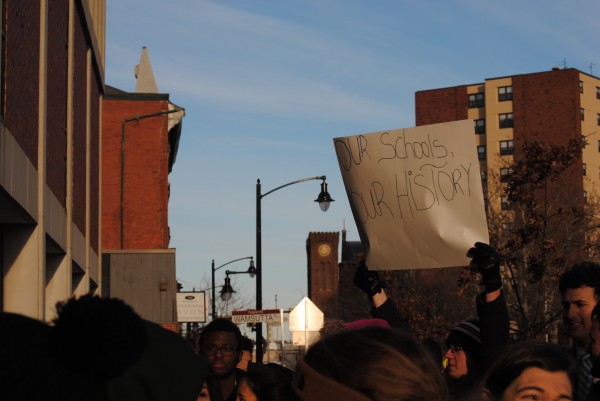
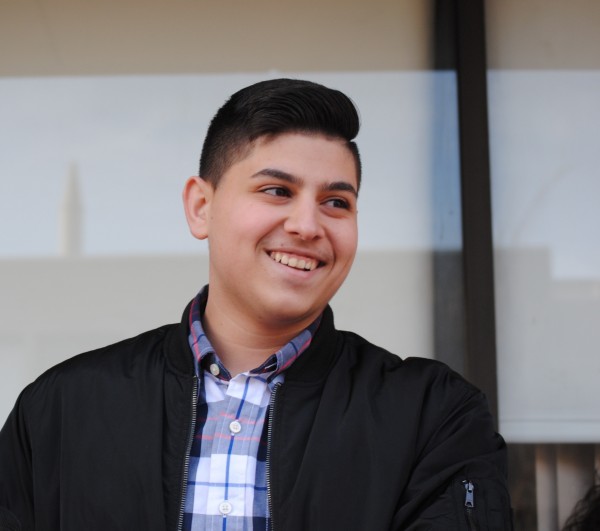
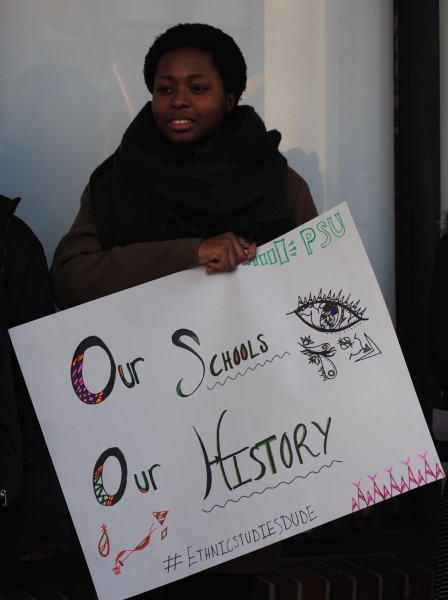

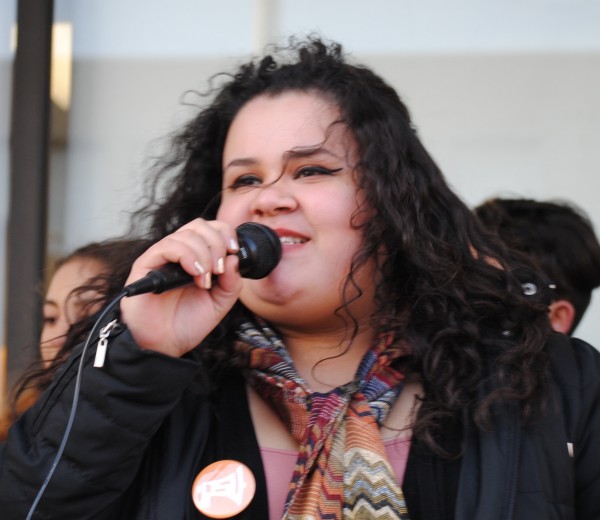

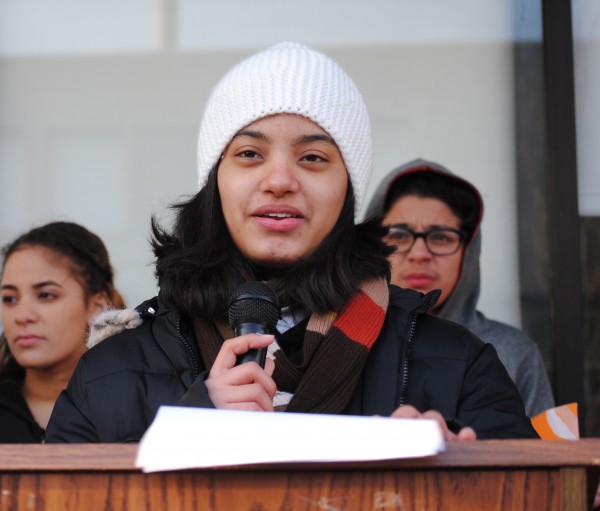
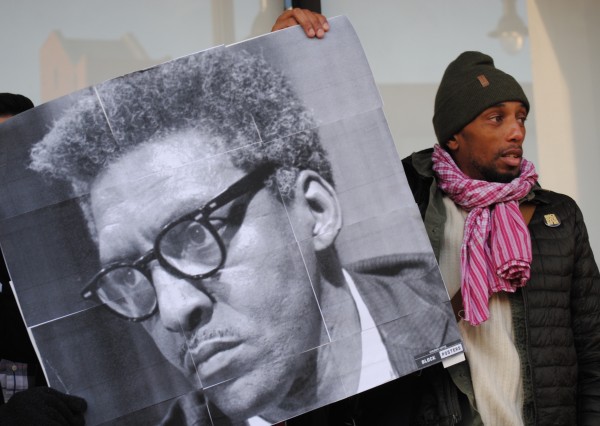
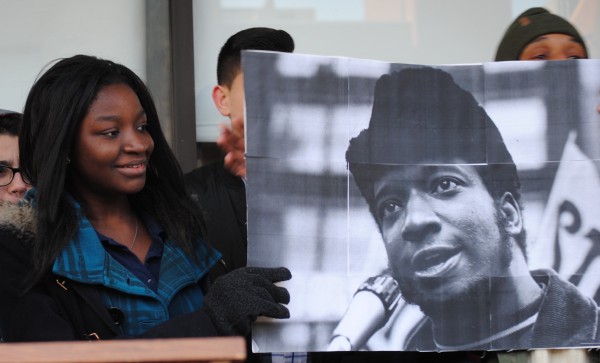
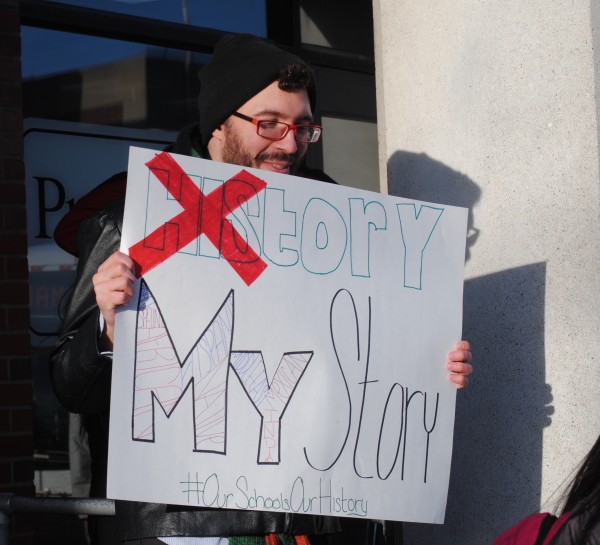
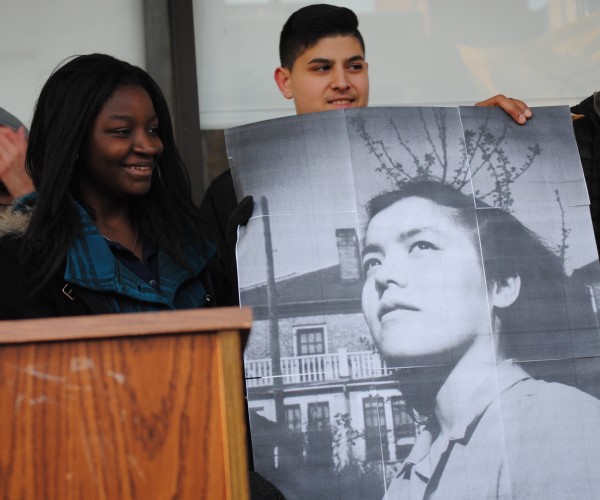
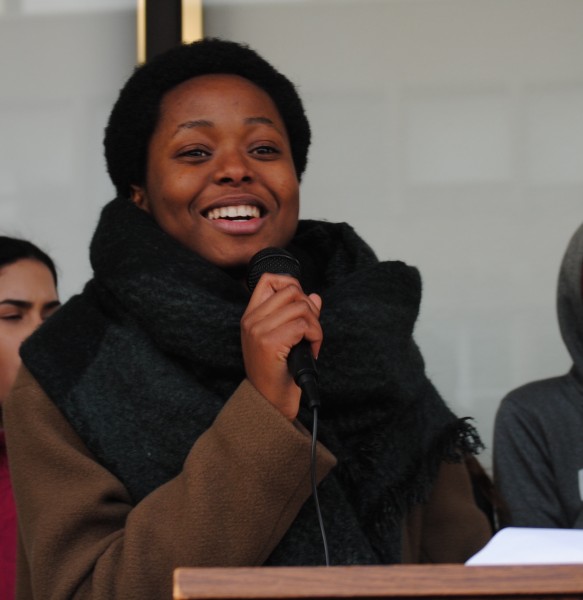
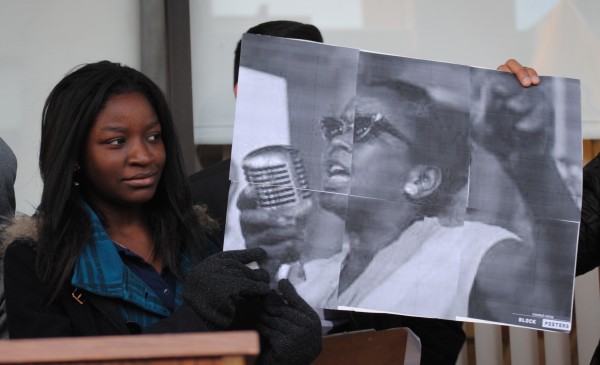
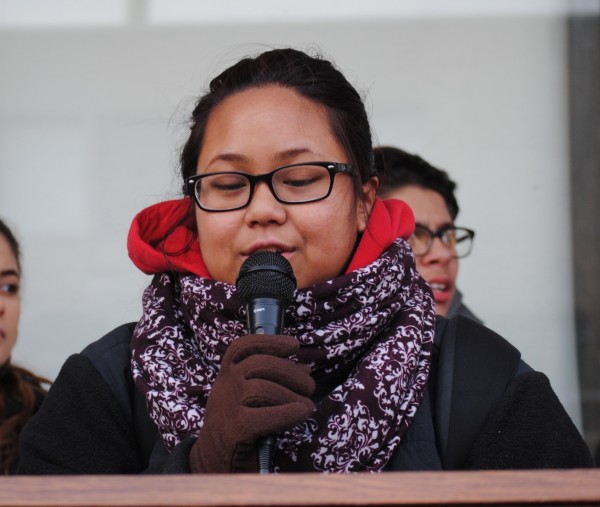
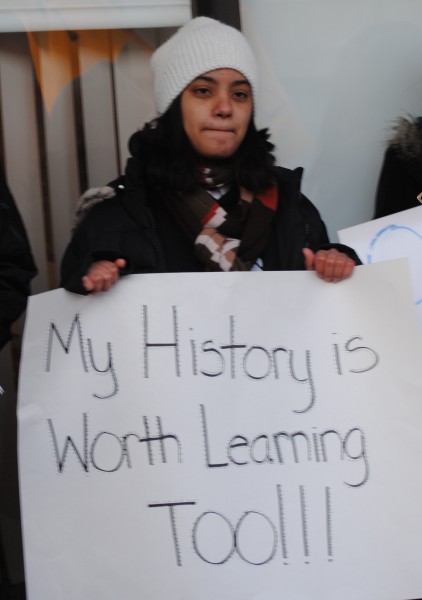
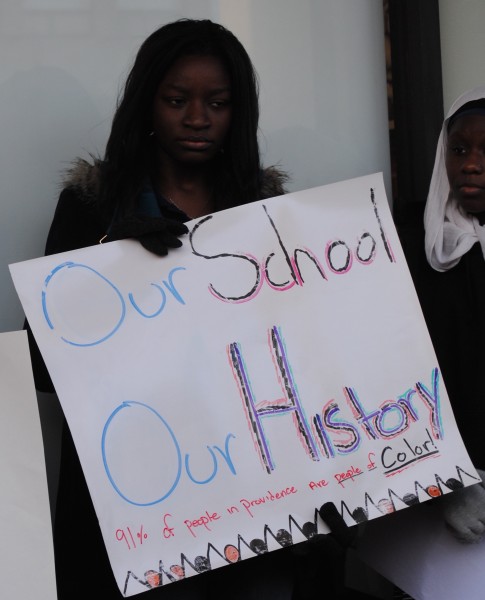
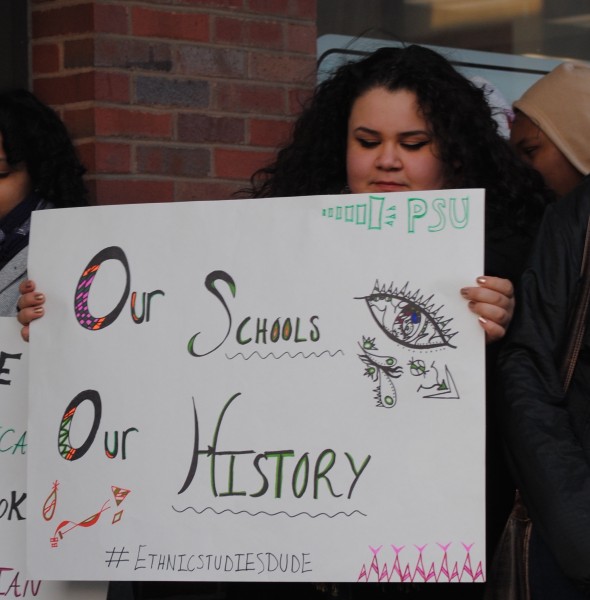
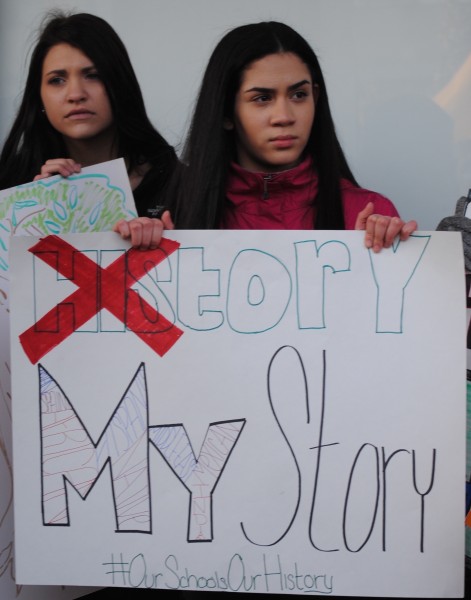
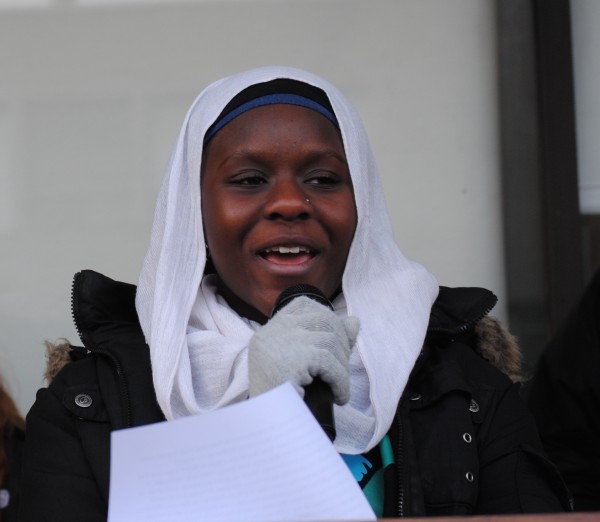
– Grace Lee Boggs
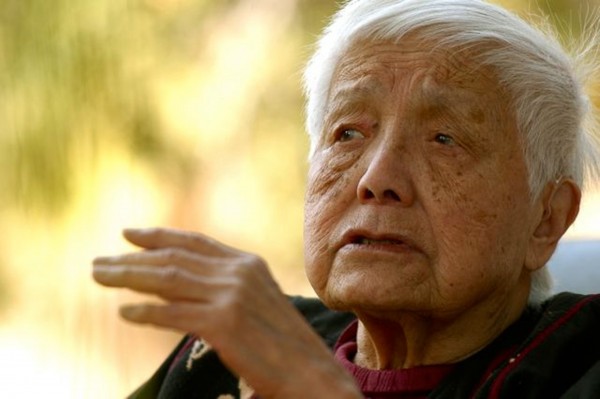 Grace Lee Boggs, who recently passed away at age 100, spent much of her life in what she described as the “great humanizing movements of the past seventy years- the labor, civil rights, Black Power, women’s, Asian American, environmental justice and antiwar movements.”
Grace Lee Boggs, who recently passed away at age 100, spent much of her life in what she described as the “great humanizing movements of the past seventy years- the labor, civil rights, Black Power, women’s, Asian American, environmental justice and antiwar movements.”
Grace Lee Boggs was a research associate of radical Caribbean Marxist CLR James, organizer among Socialists, activist for black Detroit Auto Workers, a colleague of Malcolm X, facilitated and promoted a network of small scale community gardens across abandoned neighborhoods in Detroit, organized youth leadership programs called “Detroit Summer,” and came to argue for a people oriented vision of radical, deep engagement in one’s community to create connections and tangible good. Born in Providence, educated in New York City, she lived, married, organized and passed away recently in her beloved Detroit, Michigan.
After being born in Providence, Grace Lee Boggs’ family moved to New York, and she grew up in Queens. Providence’s Chinatown was mostly eradicated by the urban renewal and highway construction programs of the 1950s and 1960s. Lee Boggs studied at Barnard College on a scholarship, and earned a PhD from Bryn Mawr College in 1940. Discrimination and prejudice limited her ability to work as an university academic, and she took a job as a research librarian. She became a collaborator with CLR James and Raya Dunayveska, Marxists who were critical of both of the Soviet Union and United States (not a popular position in Cold War politics).
In a Cold War era book she helped write with James and Dunyaveska, “State Capitalism and World Revolution,” Lee Boggs described the types of violence perpetuated against ordinary people around the world by both the “stranglehold of Stalinism” and the United States. In the 1950s, she and her peers wrote:
“Whether democratic or totalitarian, both types of society are in permanent decline and insoluble crisis. Both are at a stage when only a total reorganization can lift society a stage higher. It is noteworthy that in the United States the capitalist class is aware of this, and the most significant work that is being done in political economy is the desperate attempt to find some way of reconciling the working class to the agonies of mechanized production and transferring its implacable resistance into creative cooperation. That is of educational value and many of its findings will be used by the socialist proletariat. In Russia this resistance is labeled “remnants of capitalist ideology” and the whole power of the totalitarian state is organized to crrush it in theory as well as fact.”
In her last book, The Next American Revolution: Sustainable Activism for the 21st Century, she writes, “I came to Detroit in the early 1950s because as a Marxist I wanted to be part of a revolution in which the workers n the auto factories would take the struggles of the 1930s to a higher level by struggle for worker’ control of production in the plant. My main difference with traditional Marxists was my belief that blacks, women, and young people, and not only workers, would play pivotal roles in this revolution.”
She noted, “Living with Jimmy Boggs (her husband, Alabama born, African American autoworker and labor organizer) it was not long before I realized that my ideas had come mostly out of books and that my expectations had little or no relationship to the reality that was rapidly changing around me. When I began living in Detroit in 1953, Jimmy, a member of the United Auto Workers, was still mainly engaged with his fellow workers in struggles in the plant against automation and speed-ups (which workers in the plant called man-o-nation). ”
Jimmy came to see that high-tech automation was changing the industry, and that the role of workers in car production would be irrevocably different. He and Grace became active in Black Power circles, seeking to mobilize young people. When the riots (or rebellions) of the late 1960s broke out, both came to reflect that militant organizing in itself was not a path to broad social transformation, even if real expressions of oppression and frustration.
As she wrote, “…our main responsibility as revolutionaries was to go beyond protest politics beyond just increasing anger and outrage of the oppressed, and concentrate instead on projecting and initiating struggles that involve people at the grassroots in assuming responsibility for creating new values, truths, infrastructures, and institutions.”
She saw many movement leaders become establishment politicians. She felt that without actually, creatively challenging and changing the rules, habit and structures of governance, the same interests would be promoted, by design, and regular people would be harmed. She saw political figures in Detroit spend huge amounts of time, money and energy working to hold onto a rapidly automating auto-industry, and little in creative thinking for building alternatives and opportunity for the actual people left behind by automation. Much of her later life was spent founding community organizations and ways for people to organize and build a future themselves, different from the one so often dictated to them.
Grace Lee Boggs, born in Providence, wrote, “…we need to recognize that the aptitudes and attitudes of people with BAs, BSs, MBAs, and PhDs bear a lot of the responsibility for our planetary and social problems… [the challenge is] creating a new American Dream whose goal is a higher Humanity instead of a higher standard of living dependent on Empire.”
Much of this remembrance gratuitously quotes from Grace Lee Boggs’ “The Next American Revolution: Sustainable Activism for the 21st Century.” Please check out her work.
]]>